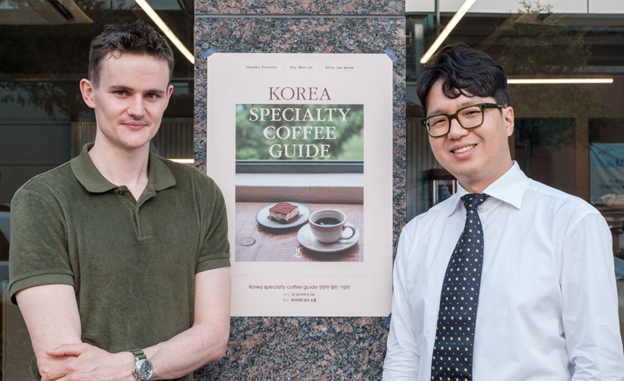
The Korea Specialty Coffee Guide aims to introduce visitors to many of the nation’s fantastic specialty cafés.
BY SUNGHEE TARK
SPECIAL TO BARISTA MAGAZINE ONLINE
Photos by Grace Bak
South Korea’s coffee market has been multiplying. The traditionally tea-drinking country has become one of the fastest-growing specialty-coffee powerhouses of late, with 2019 World Barista Champion Jooyeon Jeon representing the nation, and internationally popular coffee brands such as Fritz Coffee Company.
Nonetheless, publication on Korea’s burgeoning specialty-coffee scene has been scarce and limited to the Korean language for the domestic audience. An increasing number of coffee professionals have visited Korea, but getting a good specialty coffee is like shooting in the dark amidst the myriad café options around the country.
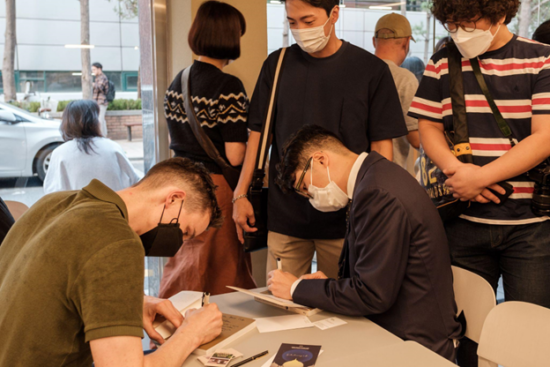
A Guidebook for Coffee Lovers
Such thirst is what led Charles Costello to create the Caffeine Compass coffee guide after living in Korea for several years. Now he has written a book, Korea Specialty Coffee Guide, to introduce visitors to Korea to more of its great specialty cafés. “Koreans do not frequently use Google Maps but instead their own search engines to search good places near you and to leave reviews. And these domestic search engines are hard to use for foreigners if you don’t speak the language. There are only so many cafes reviewed on Google Maps … making access to well-reviewed cafes difficult for non-Korean speakers,” says Charles.
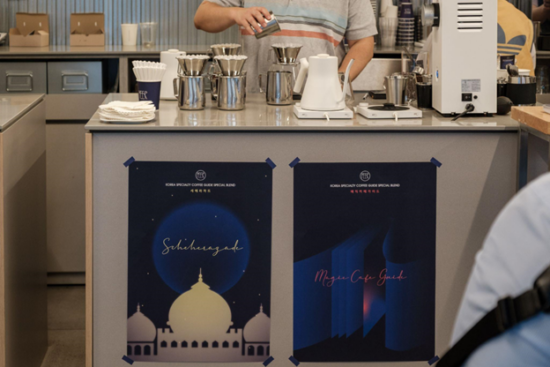
the Korea Specialty Coffee Guide release.
Charles teamed up with Wonjin Cho and Jaebom Shim, who have been among the leading voices in archiving and writing on the Korean coffee industry for a while now, to write the book. Korea Specialty Coffee Guide marks an important milestone as the first specialty guidebook on Korea’s coffee industry to be written in English.
Book Contents
Korea Specialty Coffee Guide features a brief summary of the history of the Korean coffee industry, beginning with the Chosun dynasty—when the first written record of coffee drinking in Korean territory appears in 1886. Next is the rapid growth in consumption of pre-mixed soluble coffee in a stick, popularized by Dong Suh Food Corporation. Then, there is the first Starbucks opening in 1999, and the onset of the specialty-coffee scene in the country, primarily led by Terarosa, Namusairo, and Coffee Libre. It continues with the emergence of the most recent wave of specialty-coffee leaders: Fritz Coffee Company, Felt Coffee, and Momos Coffee, between 2009 and 2016. The book is packed with in-depth reviews of the 82 most notable cafés across the country, all while exploring what makes the Korean specialty-coffee industry so enticing.
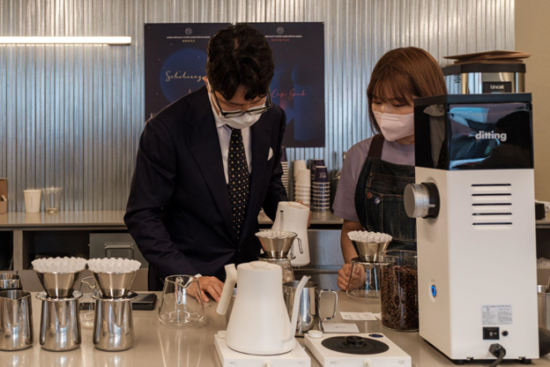
The authors selected these cafes, they say, because they captured the essence of the unique Korean coffee scene. Readers can expect to have them categorized by various regions in and outside of Seoul. Thanks to the authors’ depth of connection with the industry, each café in the book is reviewed with essential information. Reviews include opening hours, locations, and the stories of the founders and brands.
The Book’s Purpose
In celebration of the launch, on September 30, the authors hosted an event at Peer Coffee Roasters in Seongsu, Seoul. Hundreds of coffee professionals from across the country attended the event. The authors personally greeted each guest and served the special blends of coffee created for the books: Magic Cafe Guide and Scheherazade, the first specialty decaf blend to be introduced in the Korean coffee scene.
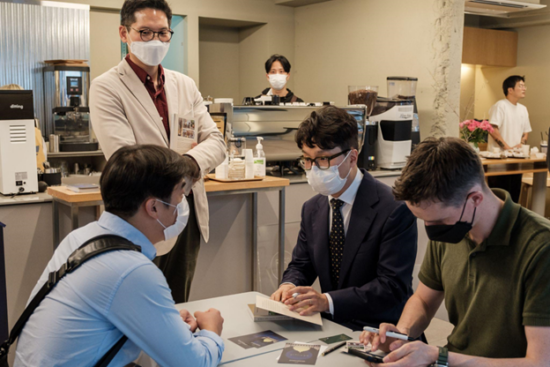
The authors hope that this book will be a helpful guide to those visiting South Korea in the future, as they search for a good cup of coffee during their stay. The Korea Specialty Coffee Guide is published by Ttabi, a Korean publisher, and is available for shipping across North America through online platforms Kyobo USA and Bandibook USA.
ABOUT THE AUTHOR
Sunghee Tark (she/her) is the co-founder of Bean Voyage, a feminist organization that collaborates with smallholder womxn coffee producers to build an equitable coffee value chain. She is also a freelance coffee writer, Specialty Coffee Association LEAD Scholar, and Re:Co Fellow.




